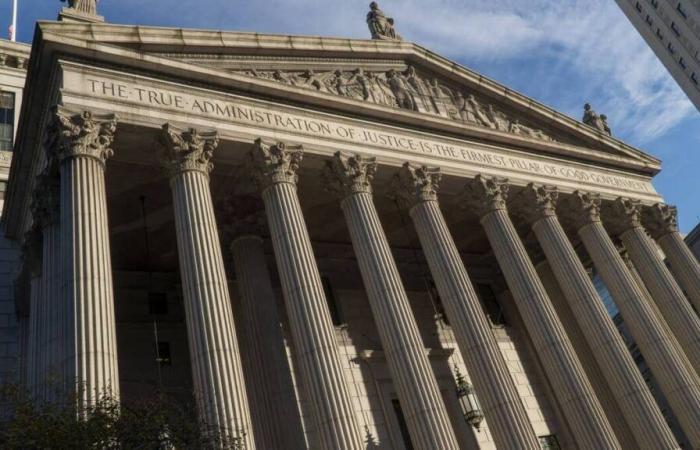The Supreme Court with a conservative majority appeared divided on Wednesday on minors’ access to medical treatments to change their gender, a subject of deep tension in American society, but seems inclined to let states ban them.
• Also read: A leader in the US Congress wants to block access to the toilets of a transgender elected official
• Also read: PICTURES | The new Miss Universe is her
The subject is particularly relevant in the perspective of the return to the White House of Donald Trump, who has hammered home his intention to reverse a series of achievements obtained by transgender people.
The Court’s decision, expected by the end of June, in any case after the inauguration on January 20 of the elected president, could have serious consequences, because half of the American states have prohibited treatment for minors who do not recognize themselves. not in their birth gender.
Of the 1.6 million people who identify as transgender in the United States, more than 300,000 are aged 13 to 17, more than a third of whom live in one of these states, according to a study by the Williams Institute, a think tank of UCLA University.
At the heart of the debates on Wednesday: a law adopted in 2023 by the state of Tennessee (south) prohibiting transgender minors from accessing puberty blockers and hormonal transition treatments.
Supporters from both camps, for and against this ban, demonstrated loudly in front of the Court, each claiming concern for the “health of children”.
Minors and their families, a gynecologist from Memphis as well as the administration of outgoing Democratic President Joe Biden denounce the “discriminatory” nature of the Tennessee law.
They say it violates an “equal protection” provision of the Constitution’s Fourteenth Amendment because it deprives transgender people of access to treatment permitted to others for medical reasons.
Biden administration legal counsel Elizabeth Prelogar and a representative for the plaintiffs, Chase Strangio, also criticized the law Wednesday for completely banning transitional treatment for minors without considering its benefits, such as significant reduction cases of depression and suicidal thoughts.
First
“Usually, states legislate by informing patients of the risks and trying to minimize them,” noted Chase Strangio, the first openly transgender lawyer to appear before the Supreme Court and who confided that he himself had benefited from these treatments.
But in this case, Tennessee has “pronounced a general ban, overriding the judgment of parents who love their children and the doctors who recommended these treatments,” he lamented.
“It seems to me that this is an area in which we are particularly devoid of expertise,” retorted the President of the Court, John Roberts, wondering if wisdom did not command the nine judges to “defer to the legislators” from different states to assess the benefits and risks.
His conservative colleague Brett Kavanaugh also stressed that it was “very difficult” for judges to decide on the matter.
“If treatment is banned, some children will suffer because they will not have access to it. And if they are allowed, others will suffer by taking them and then regretting having done it and wanting to reverse their transition,” he summarized.
Tennessee passed this law to protect minors from medical interventions that are “risky and likely to have often irreversible consequences,” said state representative Matthew Rice on Wednesday.
He also contested, in the face of objections raised by the three progressive judges, that the law is discriminatory based on sex.
“If a boy asks for puberty blockers to treat too early puberty, he will be able to get them. But he will not be able to use them for a gender transition,” argued Matthew Rice, assuring that the same criteria applied for a girl.
In the United States, Republicans have made attacks on the place of transgender people one of their battlehorses against “wokism”, the right-thinking with which they accuse the Democratic camp.
Conservatives are particularly targeting the participation of transgender men in women’s sports competitions and minors’ access to transition treatment.






